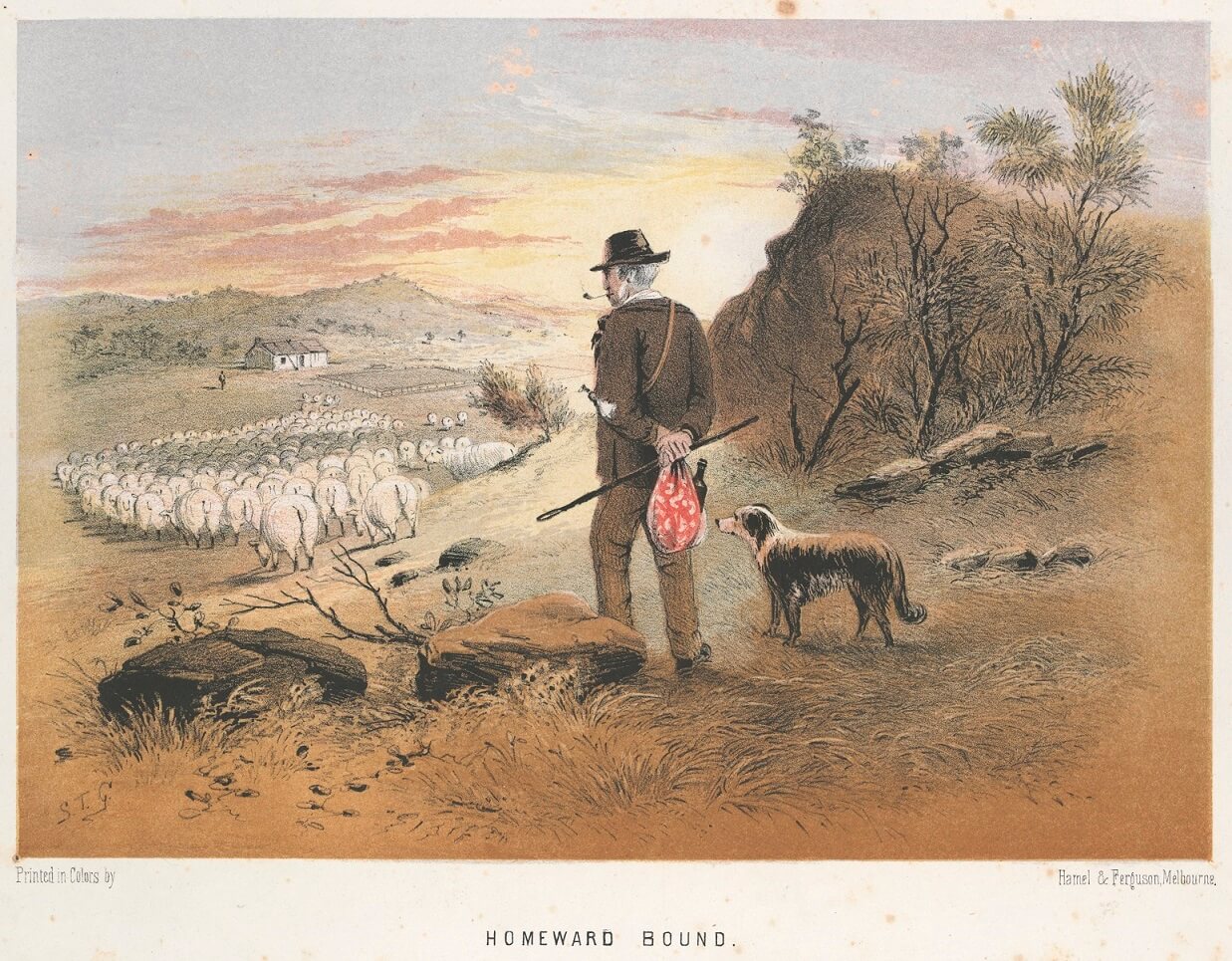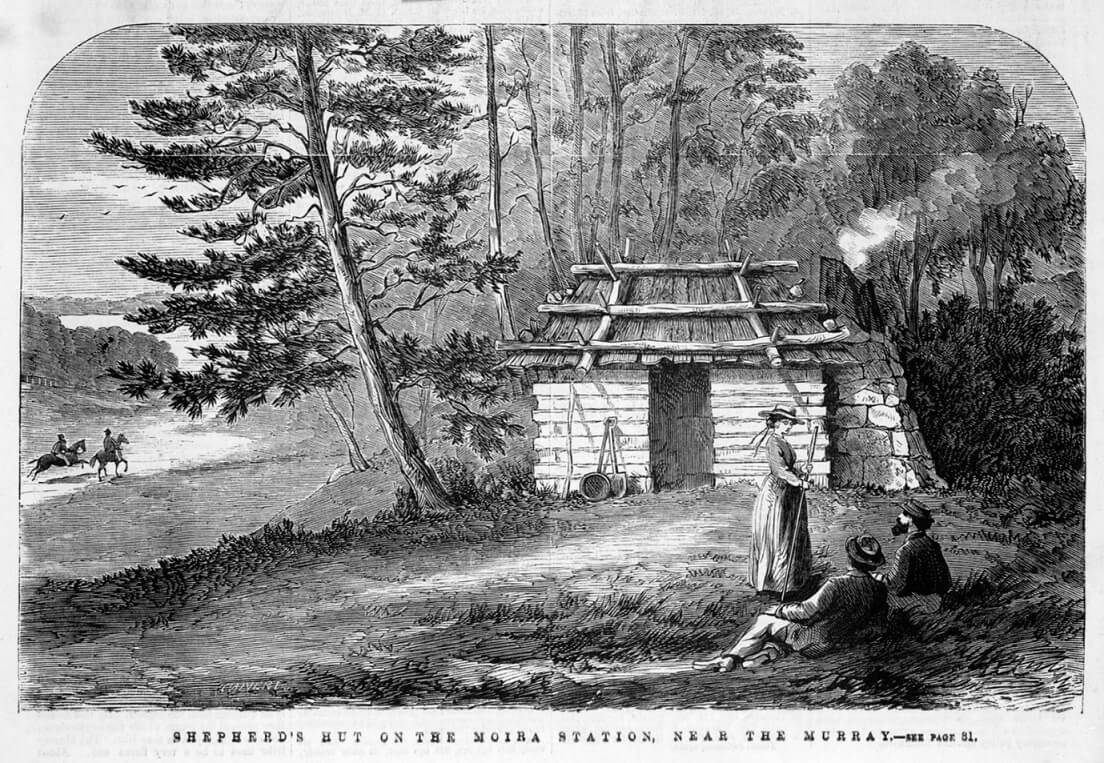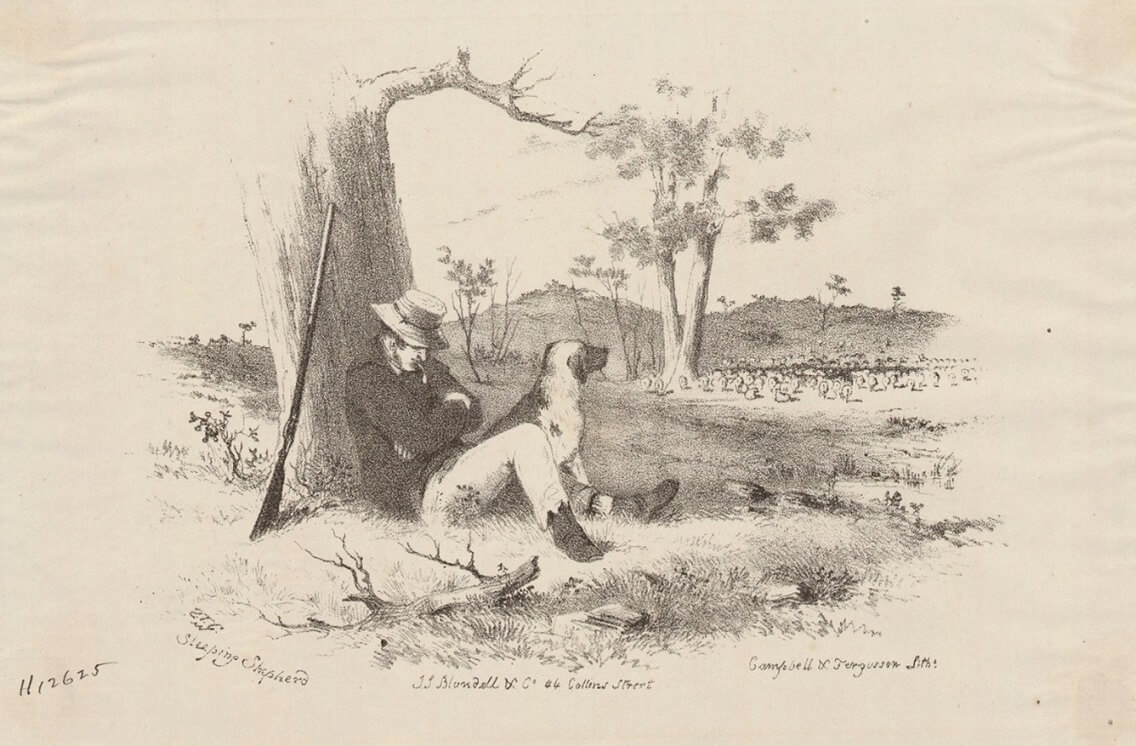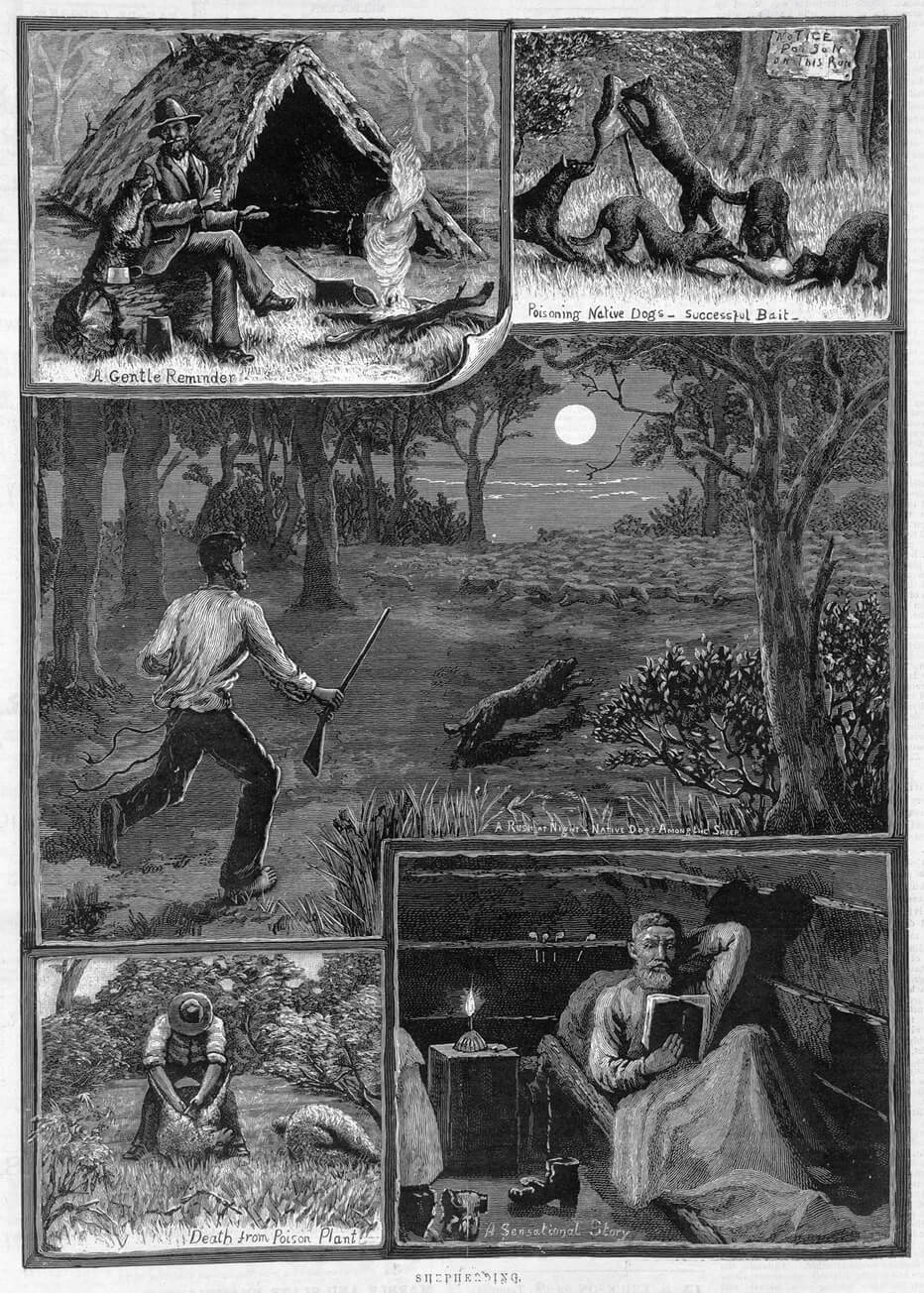It was pastoralists who initiated the white occupation of lands around Port Phillip Bay and over the first few decades they made good their initial advantage. Pastoral stations soon extended over millions of acres, appropriating the areas of grassland that once supported large mobs of kangaroo. Those animals quickly became scarce near settlements. Early pastoral runs were not fenced and in those first decades many found employment as shepherds minding stock. Being a shepherd was a lonely life, isolated in the bush, sometimes with just a dog for company. Shepherds were often away with their sheep for months at a time, moving the stock between pastures in search of sufficient feed and protecting them from other hazards. Although there were no foxes in the first decades, (until thoughtless ‘sportsmen’ introduced them in the 1870s for gentlemen to hunt,) there were wild dogs to contend with and sheep could also become bogged in wetlands or be poisoned by unfamiliar plants. Shepherds often lived in makeshift huts, subsisting on monotonous rations of flour, sugar, a little tea and whatever they could forage. In the first decades, some shepherds were ex-convicts from either Van Diemen’s Land or New South Wales.
The life of the shepherd in the bush inspired many illustrations, from early colonial times until the late-nineteenth century.
Homeward Bound, by S. T. Gill, c. 1864. Coloured lithograph from the Australian Sketchbook series
Reproduced courtesy State Library Victoria
Shepherd’s Hut on the Moira Station, near the Murray. Samuel Calvert engraver, 1869
Reproduced courtesy State Library Victoria
Sleeping Shepherd, S T Gill, c. 1856. Black & white lithograph
Reproduced courtesy State Library Victoria
Shepherding, Illustrated Australian News, 21 August 1886
Reproduced courtesy State Library Victoria
This series of illustrations highlights the many hazards confronting the shepherd even as late as the 1880s. They include attacks from wild dogs and sheep eating poisonous plants. Two styles of rough shelter commonly used by shepherds in the bush are also shown.
Children were also employed as shepherds, although not all were paid. The sons (probably not the daughters) of early pastoralists often minded sheep, spending nights in the bush alone or with siblings when quite young by modern standards. This first generation of pastoral children may have had very little formal education as a result. Although there were many illustrations of adult shepherds, we could not find any showing children.




